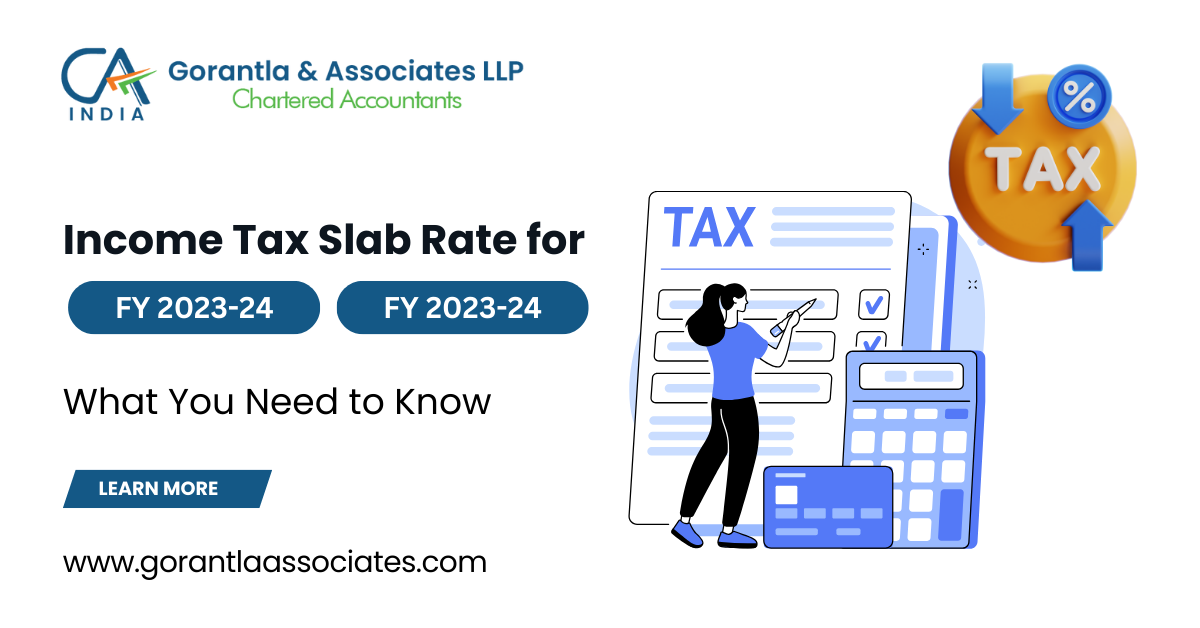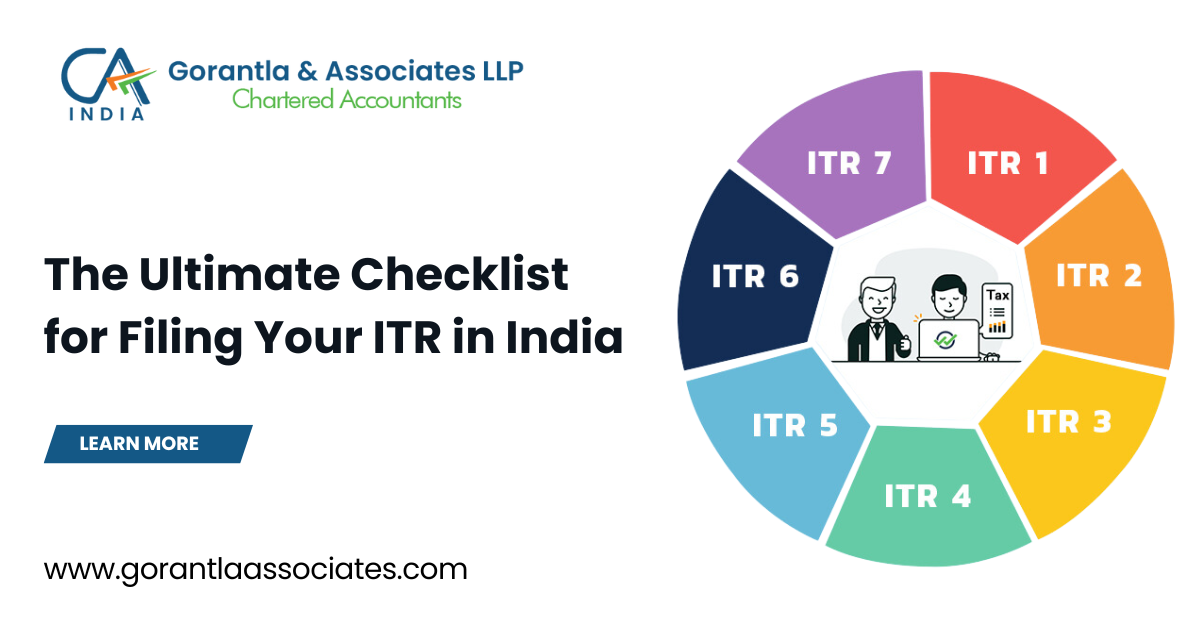
Form 67 & Claim of Foreign Tax Credit
When a resident taxpayer receives income from a foreign state, the tax will be deducted from the income of the foreign state and such taxpayer is liable for tax in resident state. In such cases, residents can claim credit for the amount of tax deducted in the foreign state by filing Form 67 with the income tax department.
Residents must submit Form 67 before the due date of Income Tax Returns (ITR) filing to claim credit for such taxes. Form 67 is also required to be furnished in case the carry backwards of losses of the current year results in the refund of foreign tax for which credit has been claimed in any previous years.
The Central Board of Direct Taxes (CBDT) revised Rule 128 to provide that Form 67 can be filed on or before the end of an assessment year if the return of income for that year was filed within the time stipulated in Section 139(1) or Section 139(4).
If the assessee has filed an updated return under Section 139(8A), Form 67 (related to income included in the updated return) must be filed on or before the date of filing of the updated return. However, Form 67 to claim Section 90 relief needs to be filed before the end of the assessment. Filing Form 67 after the end of the assessment year will not make you eligible to claim the credit.
The modification takes effect on April 1, 2022, and so applies to all FTC claims submitted during the fiscal year 2022–2023.
What Is Foreign Tax Credit (FTC)?
Assume a scenario where a taxpayer is a tax resident of Country A (Residence State) and receives income from Country B (Source State). The Source State withholds a portion of taxes on the income received by the taxpayer in that country. Further, the Residence State, according to its tax laws, would tax the taxpayer on his worldwide income, which would include income from the Source State too.
This would result in the taxpayer being taxed on his income twice, i.e. once in the Source State and once in the Residence State. To address this, the tax laws in various countries provide for a mechanism whereby the Residence State allows a deduction of taxes paid in the Source State from the total tax liability in the Residence State.
For example: You are an Indian tax resident holding Shares of Apple Inc. listed on the US Stock Exchange. You have received $ 2000 as a dividend from Apple Inc. Now as per India-US DTAA, the U.S. will withhold 25% in taxes at source. So, you will get only $ 1500 into your bank account. Now while declaring such income in India, since you are an Indian tax resident, Global Income is taxable in India, and thus you will have to declare the entire $2000 as income in India. However, under DTAA, you are eligible to claim the credit for the taxes which you already paid in the U.S. The calculation will be as follows

The concept of claiming a deduction or credit of taxes paid in the Source State against tax liability in the Residence State is called Foreign Tax Credit (FTC).
Concept of FTC In India
As per the tax laws of India, sections 90 and 91 of the Income Tax Act deal with the concept of FTC. Section 90 discusses the claiming of FTC in a case where India has entered into a Double Taxation Avoidance Agreement (DTAA) with another country, and such DTAA provides for claiming of such FTC. Section 91 deals with claiming of FTC in scenarios where India has not entered into a DTAA with the country where the income arises for a taxpayer. Under these sections, if the taxpayer is a resident of India, and he has paid taxes outside India, he can claim a credit of such foreign taxes paid against his tax payable in India.
Rules for claiming FTC have been notified under Rule 128 w.e.f 1.4.2017, which have helped clear out ambiguity around claiming of FTC, some of which have been briefly captured here under:
-FTC is to be allowed in the year in which the income corresponding to such tax has been offered or assessed to tax in India;
-FTC shall be available against the amount of tax, surcharge and cess payable under the Indian tax laws but not against interest, fee or penalty;
v FTC shall not be available if the foreign tax is a disputed one;
-FTC is available even on tax payable under Section 115JB (Minimum Alternate Tax);
-FTC shall be the aggregate of the amounts of credit computed separately for each source of income arising from a particular country;
-FTC shall be lower of, tax payable on such income under the Indian tax laws and the foreign tax paid;
-FTC shall be determined by conversion of the currency of payment of the foreign tax at the Telegraphic Transfer Buying Rate on the last day of the month immediately preceding the month in which such tax has been paid or deducted.
What Is Form 67?
Form 67, as mentioned above, is a crucial document that has to be furnished in order to claim FTC by a taxpayer. As per Income tax rules 128(9), It is also essential that Form 67 be furnished by the end of the assessment year before filing the Original Return under section 139(1) or Belated Return section 139(4), i.e. For A.Y 2024–25. You must file Form 67 before 31st Dec 2024 to claim the tax credit.
Contents of Form 67
Form 67 contains the below four sections:
Part A — Part A contains basic information, such as name, PAN or Aadhaar number, address, assessment year, receipt of details of the income from a country outside India and details of foreign tax credit claimed.
Part B — Part B contains details of refund of foreign tax as result of carry backward of losses and disputed foreign tax.
Verification — This section contains a self-declaration form as per the Income Tax Rules, 1962.
Attachments — The last section is attachments, where the taxpayer needs to attach a copy of the certificate or statement and proof of payment or deduction of foreign tax.
Procedure For Filing Form 67
The CBDT, vide notification no. 9/2017, dated 19 September 2017, has prescribed the procedure for filing Form 67, which has been enumerated here:
-Form 67 is to be prepared and submitted online for taxpayers who are mandated to file their income tax returns electronically.
-This form is available on the e-filing portal of the income tax department in the taxpayer’s account.
-A Digital Signature Certificate (DSC) or Electronic Verification Code (EVC) is mandatory to submit Form 67
-Submission of Form 67 shall precede the filing of the return of income.
Documents Required To Claim FTC
In accordance with Rule 128, in order to claim FTC, the taxpayer is required to furnish the following documents on or before the due date of filing of return:
1. A statement of :
· foreign income offered to tax
· foreign tax deducted or paid on such income in Form №67
2. Certificate or statement specifying the nature of income and the amount of tax deducted therefrom or paid by the taxpayer :
· From the tax authority of the foreign country
· from the person responsible for the deduction of such tax
· signed by the taxpayer
3. Proof of payment of taxes outside India.
Visit to know more about NRI Taxation Or www.gorantlaassociates.com
— –
Continue Read:
NRI Taxation Simplified:Understanding Residential Status and Taxes-Part 1
Understanding NRI Accounts and Taxation: Types and Implications — Part 2
Navigating NRI Capital Gains and Taxation: A Comprehensive Guide for Post-2018 Rules — Part — 3
Repatriating Property Sale Proceeds for NRIs: Process and Tax Implications — Part -4
Taxation Insights for Non-Resident Artistes, Entertainers, and Sportspersons in India — Part 5
NRI Tax Deductions and Special Provisions Under Chapter VI of the IT Act — Part 6
NRI and Foreign Citizen Taxation on Cross-Border Transactions — Part 7
Simplifying Taxation for NRIs with Blanket Deductions — Part 8
Disclaimer:
This Article/Blog has been contributed by Butchibabu Gorantla, B.Com, FCA, FCS, Chartered Accountant. This article/blog is posted with due authorization from the author for the academic purposes. The views and opinions expressed herein are those of the author and don’t constitute a legal advice to any user.
Share
Related Posts
July 25, 2024
A Comprehensive Overview of the Finance Bill 2024
The Finance Bill 2024, introduced in the Lok Sabha, seeks to implement the financial proposals…
July 25, 2024
The Provisions of the Finance Bill, 2024: A Comprehensive Overview
The Finance Bill, 2024, introduces several amendments to the Income-tax Act, 1961, and other related…
July 15, 2024
Understanding the Income Tax Slab Rates for FY 2023-24, AY 2024-25: New vs. Old Tax Regimes
The income tax slab rate is the percentage of tax you pay on your income,…
July 15, 2024
Which ITR Form is Right for You? Find Out Now!
Filing your Income Tax Return (ITR) in India is an essential responsibility. However, with various…






